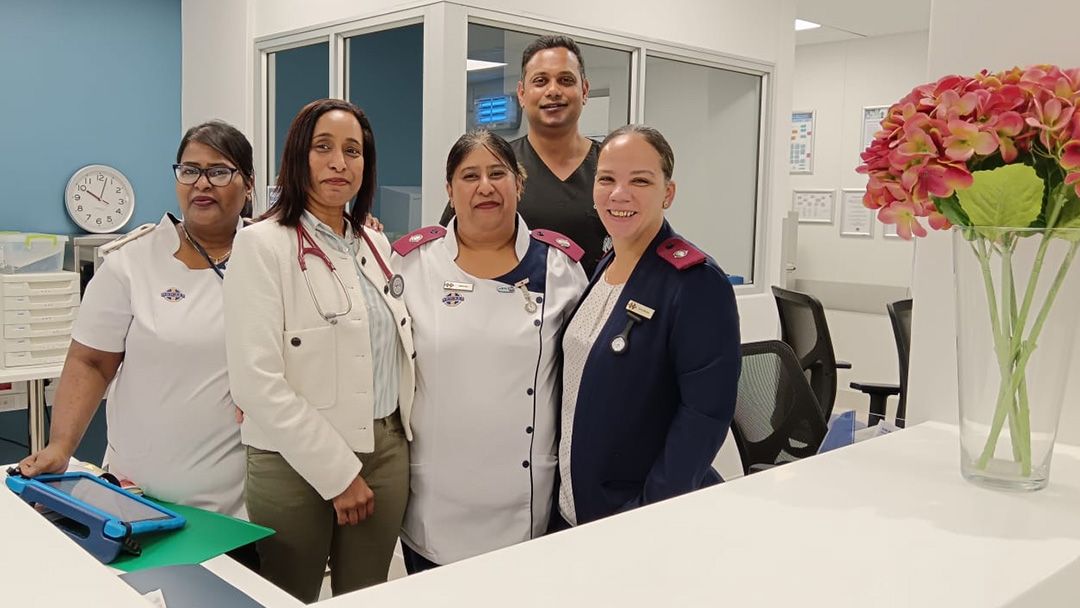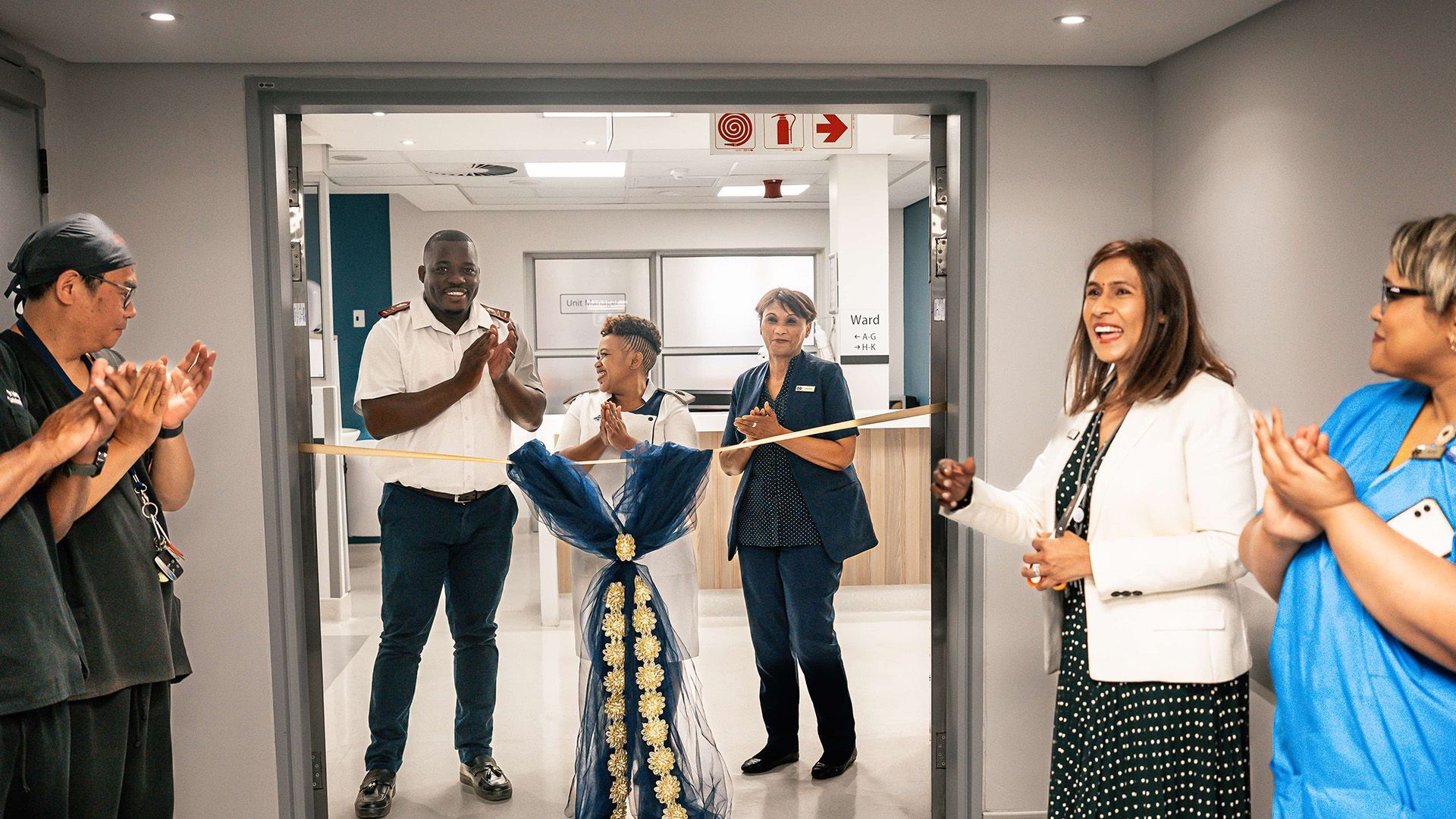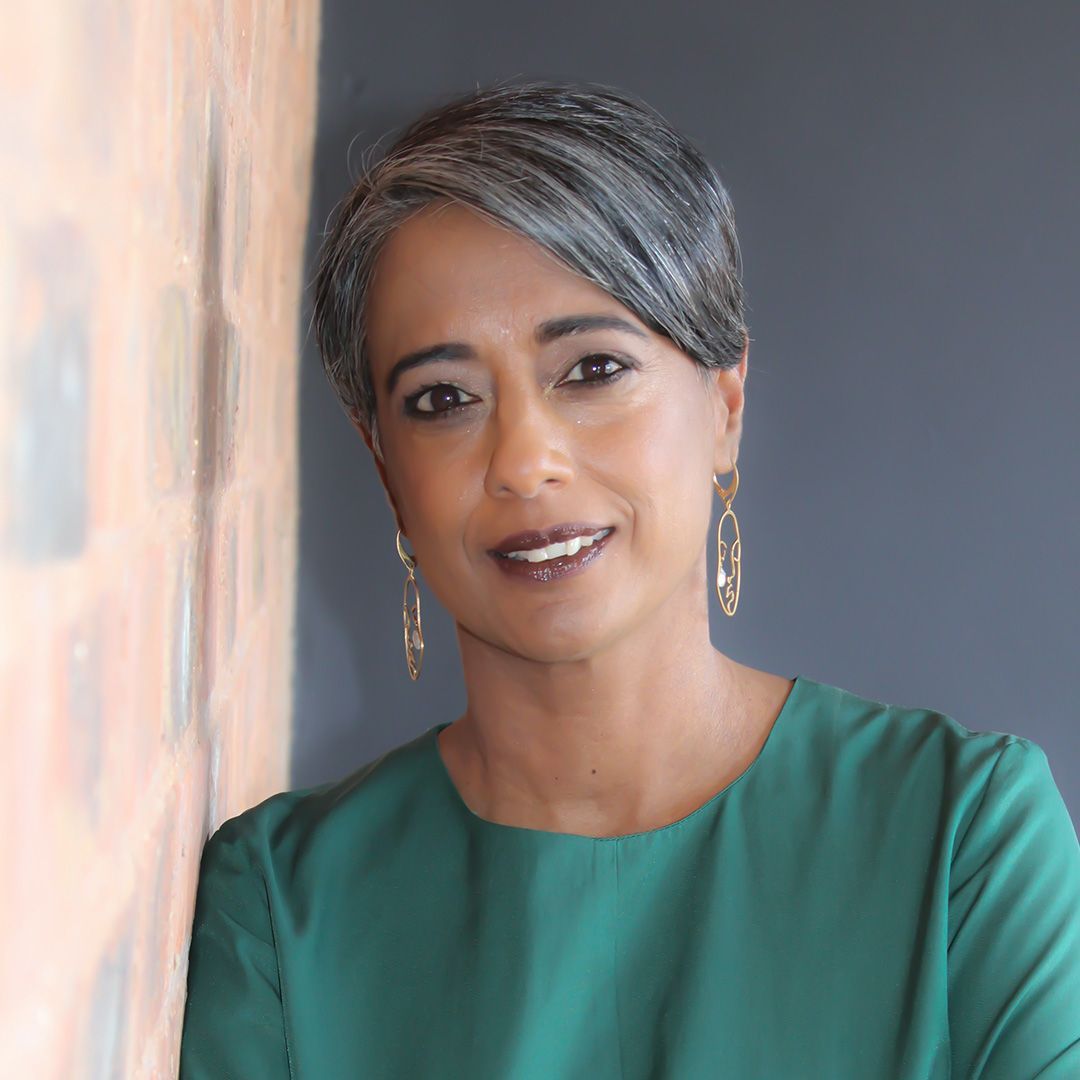More cardiac capacity good news for heart health in KZN
St Annes Cardiac Ward Opening: Cardiothoracic surgeon Dr James Chen, medical ward unit manager Zamani Cele, enrolled nurse Gugu Mahlaba, PA Vanessa Davids, Netcare St Anne’s Hospital general manager Sharon Singh and Clinical Application Support Specialist Jamie Lee Hein are pictured at an event to mark the opening of the dedicated medical and cardiac wards. (Photo credit Jason Lisher Photography)
Dedicated state-of-the-art cardiac and medical wards
A dedicated cardiac ward equipped with state of the art technology is contributing to the expansion of private specialised cardiac care services in the KwaZulu-Natal Midlands at Netcare St Anne’s Hospital.
“The surge in cardiovascular conditions affecting our society is well documented. Fortunately, advances in cardiac medicine and heart-related treatment technologies are progressing and providing more cause for optimism,” says resident cardiologist Dr Yuvashnee Govender.
“With our multidisciplinary team approach, we can provide each patient with the collective expertise of leading specialists, and the new dedicated cardiac ward offers a centralised, tranquil healing environment tailored to the specific needs of patients undergoing heart procedures, recovering from cardiac arrest or dealing with a wide range of heart-related conditions requiring acute hospitalisation.”

Cardiac ward Netcare St Annes: (Front row from left to right) Enrolled nurse Cindy Moodley, resident cardiologist Dr Yuvashnee Govender, registered nurse Nadira Ittal, cardiac ward unit manager Donna Marillier, and (back) resident cardiothoracic surgeon Dr Jehron Pillay.
Resident cardiothoracic surgeon Dr Jehron Pillay, who has been instrumental in establishing the specialised cardiac care unit, says the team is performing increasingly complex interventions alongside more routine procedures at Netcare St Anne’s Hospital.
Patients admitted for advanced heart failure therapy, advanced catheterisation and other crucial cardiac services have the reassurance of a resident cardiac team, experienced nursing care and a state of the art digitally enabled ward that is fully centred on heart health.
“The specialised cardiac care unit is run by a passionate and diverse team who have the drive to provide world-class cardiac care to our patients, and we see the new ward as the next logical step in expanding this critical discipline,” Dr Pillay says.
Other cardiac services include the facility’s high-tech catheterisation laboratory, which houses sophisticated diagnostic imaging equipment used to visualise the vascular system and the chambers of the heart. This enables cardiologists to diagnose specific cardiovascular conditions accurately, guiding their treatment through minimally invasive interventions.
Netcare St Anne’s Hospital general manager Sharon Singh says the newly built cardiac ward comprises 12 beds, with single, double and four-bedded rooms with adjoining bathroom facilities.
“The design incorporates partitioned cubicles in the shared rooms to ensure each patient’s privacy and comfort is provided for. Our new cardiac ward also includes an isolation cubicle equipped for both negative or positive air pressure control, as well as a spacious private VIP suite with a large ensuite bathroom,” she
says.
“In addition, a newly renovated 23-bedded medical unit is fitted with the latest technology for patients’ comfort and safety. This includes six private rooms with two isolation suites and most rooms have access to the garden, which is both soothing and beneficial for recovery.”
Be proactive about heart health
“Whether or not you have a family history of heart problems, looking after your heart and cardiovascular system should be a priority from a young age,” says Dr Pillay.
The World Health Organization (WHO) cites cardiovascular disease as the leading cause of death globally.
“Regularly check in with your primary healthcare practitioner for health screenings to check for risk factors such as high blood pressure, raised blood glucose, cholesterol levels, and indicators such as obesity,” he says.
“If detected early, these factors can often be managed with lifestyle changes and prescribed medicines to dramatically reduce the risks of heart attack, stroke, heart failure and other potentially life-threatening conditions,” Dr Govender adds.
“We aim to improve public awareness that heart health cannot be taken for granted and continue to build excellence in cardiac care for the people of Pietermaritzburg and surrounding communities in KwaZulu-Natal.”













